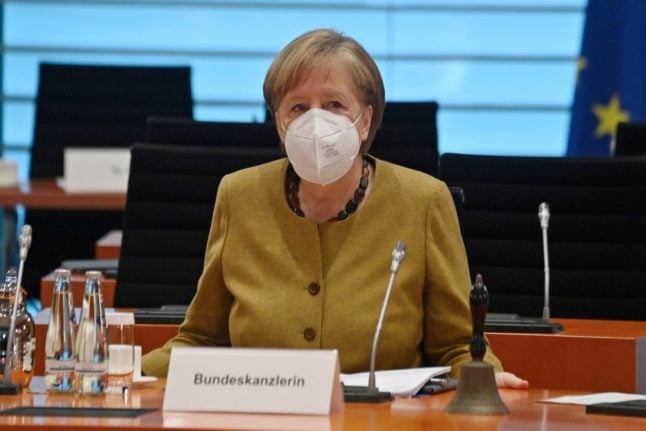“I am delighted to have received my first vaccination with AstraZeneca today. I thank everyone involved in the vaccination campaign and everyone who gets vaccinated. Vaccination is the key to getting out of the pandemic,” the 66-year-old said in a tweet posted by her spokesman Steffen Seibert.
Kanzlerin #Merkel: „Ich freue mich, dass ich heute die Erstimpfung mit AstraZeneca bekommen habe. Ich danke allen, die sich in der Impfkampagne engagieren – und allen, die sich impfen lassen. Das Impfen ist der Schlüssel, um die Pandemie zu überwinden.“ pic.twitter.com/P4kMJYNrlc
— Steffen Seibert (@RegSprecher) April 16, 2021
Merkel is stepping down this year after nearly 16 years in power.
In 2019, she sparked concerns for her health with a series of shaking spells in public but has appeared to be in good condition since then.
Merkel had frequently been asked about her plans to get vaccinated but insisted that she would wait her turn according to Germany’s strict priority policies regarding the coronavirus jab.
The German capital, its own city-state, opened vaccinations to all people over the age of 60 earlier this month.
German officials have been at pains to shore up public confidence in AstraZeneca’s vaccine, which has been on a roller-coaster ride in Europe.
Germany’s STIKO vaccine commission in late March said it recommended use of the jab only for people 60 and older following concerns over several blood clotting cases among younger recipients of the vaccine.
People under the age of 60 can still take AstraZeneca in consultation with their doctor and if they are fully aware of the potential risks.
Several other countries, including France, Spain and Canada, have also imposed age limits on the AstraZeneca shot over the occurrence of rare but very severe blood clots.
Denmark this week banned the use of AstraZeneca jabs outright over blood clot concerns, just as the EU said it was expecting 50 million Pfizer vaccine doses earlier than expected.
French Industry Minister Agnes Pannier-Runacher said Friday that the EU was very unlikely to renew its vaccine contracts with AstraZeneca although no decision has been taken.
READ ALSO: ‘Highly probable’ EU won’t renew AstraZeneca orders
The European Medicines Agency in late March said experts probing links between AstraZeneca’s vaccine and the rare reports of clotting have found no specific risk factors, but are investigating further.
The World Health Organization has also said that the AstraZeneca shot is safe.



 Please whitelist us to continue reading.
Please whitelist us to continue reading.
Member comments